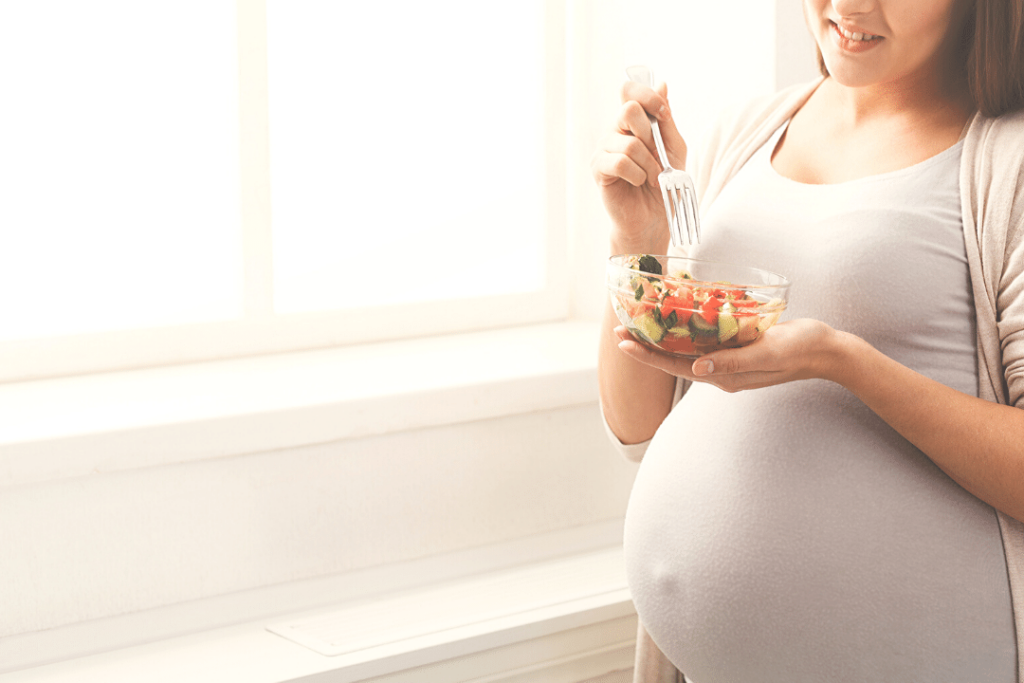Nutrition concerns and requirements during pregnancy require extra attention. Especially for expectant mothers who have celiac disease and have nutritional issues with a gluten-based diet. Research shows that a healthy diet during pregnancy will have healthy outcomes for the baby and the mother during pregnancy and post the birth of the child. A well-rounded diet is a mix of varied nutrients that aid in the normal and healthy development of the fetus.
Gluten-free diets are subject to many misconceptions like only expectant mothers with celiac disease should eat a GF diet, as it is nutritionally inadequate otherwise. However, the nutrients available in a gluten-free diet, including the micro and macronutrients required to sustain optimal blood sugar levels alongside being physically fit and active throughout your pregnancy. As per a key study published by BMJ, it suggests, “A high gluten intake by mothers during pregnancy is associated with an increased risk of their child developing type 1 diabetes.”
Dietary Requirements During Pregnancy
- Folic Acid
Folic Acid is a kind of Vitamin B found in foods like peas, lentils, beans, oranges, whole-wheat products, spinach, beets, and asparagus. It helps in replenishing the body with new cells, which is very important during the beginning of a pregnancy. Hence women in their childbearing age are recommended to consume enough folic acid in natural and supplement form.
According to What To Expect, “Possibly the most essential nutrient when you’re expecting, folate helps prevent birth defects like spina bifida. The government requires food manufacturers to add it to a few types of flours and commonly eaten grains (bread, pasta, and cereals) — but since many gluten-free products are not made with this enriched flour, you should ensure and check the folate levels on the nutrition label of the goods you buy.”
- Iron
Iron found in poultry, fortified grain products, lean red meats, beans, and lentils helps in the creation of hemoglobin in red blood cells. These red blood cells help carry the oxygen to the different organs and cells in the body. And pregnant women need extra iron to assist in the supply of oxygen to the fetus.
- Calcium
Pregnant women require a minimum of 1,000 mg of calcium per day for the development of bones and teeth of the baby. Since expectant mothers don’t produce calcium during pregnancy, you can rely on food and other supplements. The best sources of calcium are dairy products like cheese, milk, yogurt, and plant-based fortified calcium milk.
- Omega-3 Fatty Acids
Omega-3 fatty acids play a vital role in the brain development of the fetus. The best sources are fish, walnuts, flaxseed, canola oil, and edamame. Stir clear of fish that have mercury content. Omega-3 deficiency can also lead to depression among mothers.
Advantages of A Gluten-Free Diet
- Gluten-Free Food High on Iron
As mentioned earlier, the benefits of iron are many for expectant mothers. However, gluten products like bread, pasta, or cereals contain fortified iron, which has a very low rate of absorption (2%-20%). Include chicken, eggs, fish, clams, and beef in your diet, instead of the fortified gluten options to increase the iron absorption rate in your body (15%-35%).
- Eases Heartburn and Constipation
A diet rich in fiber helps a pregnant woman move everything with ease in their intestines and fight against pregnancy symptoms like heartburn and constipation. But gluten products like bread, pasta, or cereals don’t have any fiber content. A gluten-free diet can help expectant mothers to consume healthy options by replacing fortified food with broccoli, split peas, raspberries, artichoke, peas, lentils, flaxseeds, and chia seeds which are rich in fiber.
- Curbs Gestational Diabetes
Carbohydrates are essential in a pregnant woman’s diet. Eating gluten-free will help the mother to consume carbohydrates that are superior and are dense with nutrition like quinoa, sweet potato, and green leafy vegetables. Gluten diet consisting of fortified foods is glycemic-high and can inflate blood sugar levels instantly, which is disadvantageous for women at risk of gestational diabetes. Hence carbohydrates found in a gluten-free diet are rich in minerals and vitamins and do not raise blood sugar levels.
- Aids Baby’s Folic Acid Requirement
Babies need folic acid to grow healthily without complications. The body converts synthetic folic acid into biologically functional form 5-methyltetrahydrofolate, which is the most beneficial form of folic acid for the baby. The lack of conversion of synthetic folic acid in the body leads to an insufficient supply of folic acid to the developing baby. Folic acid deficiency can also lead to serious birth defects. Hence gluten-free foods like spinach, cauliflower, asparagus, beans, and lentils provide the natural form of folate, which is healthy for your growing fetus.
Eating the right diet with restrictions and limitations can be a little overwhelming considering your condition. However, indulging in different variety of foods from all food groups can provide ample nourishment to help your growing baby’s needs. Ask your doctor’s opinion before getting into any specific diet.
Further reading:
